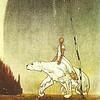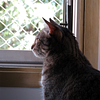Take a photo of a barcode or cover
slow-paced
emotional
medium-paced
Plot or Character Driven:
Character
Strong character development:
No
Loveable characters:
Yes
Diverse cast of characters:
Yes
Flaws of characters a main focus:
No
emotional
informative
lighthearted
fast-paced
Plot or Character Driven:
Character
Strong character development:
No
Loveable characters:
Yes
Diverse cast of characters:
Yes
Flaws of characters a main focus:
No
This is a short book, but absolutely perfect in every way. I can't stop smiling.
adventurous
emotional
mysterious
fast-paced
Plot or Character Driven:
Character
Strong character development:
Yes
Loveable characters:
Yes
Diverse cast of characters:
Yes
Flaws of characters a main focus:
No
This novella was nominated for Nebula in 2018. In begins in modern day San Francisco, were a very old lady puts thinks straight before her death (not a spoiler, it starts with “On the last Monday of her life, Helen Young returned from the doctor’s and made herself a cup of tea. As she had expected, the news was not good; there was nothing more that could be done.” . Then the story shifts to her past in 1940’s San Francisco.
This is more or less a historical novel about daily life and problems of six homosexual women, in the time period, when their way of life was a criminal offence. They are from different backgrounds and have a variety of jobs (singer, artist, lawyer etc). Up to the very end there is almost no magic, so I’d rather label is romance/historical fiction and not a fantasy. The writing is good, the author definitely investigated before writing. However, not exactly my cup of tea.
This is more or less a historical novel about daily life and problems of six homosexual women, in the time period, when their way of life was a criminal offence. They are from different backgrounds and have a variety of jobs (singer, artist, lawyer etc). Up to the very end there is almost no magic, so I’d rather label is romance/historical fiction and not a fantasy. The writing is good, the author definitely investigated before writing. However, not exactly my cup of tea.
hopeful
mysterious
reflective
emotional
mysterious
tense
slow-paced
Plot or Character Driven:
Character
Loveable characters:
Complicated
Diverse cast of characters:
Yes
Flaws of characters a main focus:
Complicated
Passing Strange is a novella that feels like it has it all: a bit of mystery, a lot of history, and just a hint of magic. A queer love story set mostly in 1940 San Francisco, the book opens with Helen Young, and elderly woman who has just a few errands to run before her life is over. As she finishes these and her life comes to a close, we drift back to when she was a young woman–and unravel some of the mystery surrounding her final actions.
This novella reads like a love letter to San Francisco, and the setting feels vibrant and clearly well researched. The plot mostly revolves around the romance between two creatives: Haskel, the visual artist who paints covers for pulp novels; and Emily, a singer at the lesbian nightclub Mona’s. They also spend their time in Chinatown, climbing the steep streets of Nob Hill, and visiting the World’s Fair, as Haskel and Emily melt together in a passionate romance. Helen is there too, of course, as are a few other queer women who enjoy throwing dinner parties, but they are all secondary characters to Haskel and Emily’s exploration of the city. While there is a lot of love for San Francisco in the novel, it clearly isn’t perfect, as we still see the prejudices of the time: Mona’s is a lesbian nightclub, sure, but it also acts as a tourist destination, where straight white couples come to be scandalized by the unnatural acts of its target patrons. Similarly, Helen is a lawyer who can’t get clients because she is a Chinese American woman, so she dances with her (beard) husband at the Forbidden City, which plays up American interests in Orientalism. All the characters both rely on and resent the tourists, as well as the stereotypes they have to perform in order to pay rent.
While I did enjoy the romance between Haskel and Emily, I was a little disappointed with how little the side characters are really involved in the story. The book opens with Helen, and she feels like the most interesting character to me, but she mostly spends her time off doing other things while Haskel and Emily go on dates and get to know each other. Then there are Franny and Babs, whose names I can hardly remember as they are only in a few scenes in the book. After such a strong opening with Helen, the ensuing domestic romance felt like a bit of a letdown–again, it was a very nice romance, but I was expecting something grand and mysterious, and I got a fairly standard romance that was like Carol, but set in San Francisco and better.
And then there’s the magic. I have mixed feelings about the magic in this story, and I think the shortness of the novella might influence a lot of it. Franny does fold maps to create shortcuts around the city, but they explain that magic is difficult, and needs to be very precise, like a complex mathematical equation. Magic is only used three times throughout the whole book, and twice are at the very end; the first usage introduces it and allows the characters to discuss it a bit. That makes this book feel less like a fantasy and more like a historical fiction that just has a magical deus ex machina so that the characters can escape the trouble that they got into at the end of the book. Now, given that the magic doers themselves talk about how this isn’t something everyday, and the magic is often small and unnoticeable to anyone not directly involved in it, there really isn’t enough room in a short book like this for there to be a lot of magic. So it does make sense in universe as to why there is so little actual magic use in the book. But I was drawn to this book because of the fantasy elements, and if I didn’t like historical fiction, it would have been a bit of a letdown.
This was an enjoyable read, and I would recommend it to anyone looking for a sapphic historical fiction that is short and sweet, with just a sprinkle of magic. However, I doubt I’ll be revisiting it. I do have a lot more opinions about the ending, spoilers below:
Plot or Character Driven:
A mix
Strong character development:
Complicated
Loveable characters:
Yes
Diverse cast of characters:
Yes
Flaws of characters a main focus:
No







